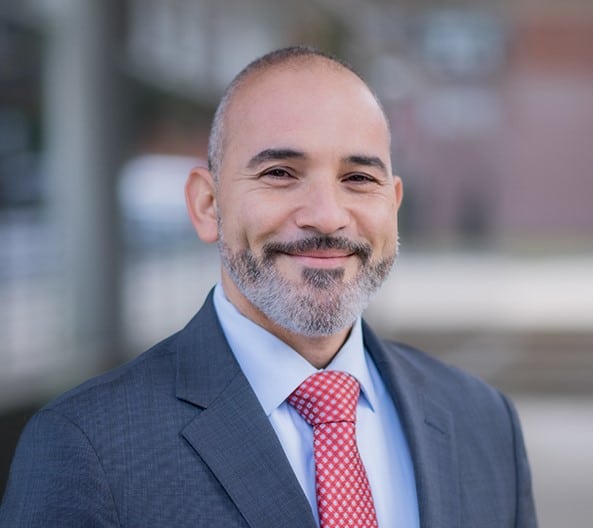Wealthtender is a trusted, independent financial directory and educational resource governed by our strict Editorial Policy, Integrity Standards, and Terms of Use. While we receive compensation from featured professionals (a natural conflict of interest), we always operate with integrity and transparency to earn your trust. Wealthtender is not a client of these providers. ➡️ Find a Local Advisor | 🎯 Find a Specialist Advisor

Do you work for the Pennsylvania State System of Higher Education (PASSHE)? Get the resources you need and expert insights from financial professionals who specialize in helping PASSHE faculty and staff make the most of their compensation package and benefits.
Whether you’re a new PASSHE faculty or staff member at a campus around the state, employed by the Office of the Chancellor in Harrisburg, or you’ve worked in the Pennsylvania State System over a multi-year career, it’s important to make smart money moves with your income and employee benefits. For example:
✅ Do you know the right moves to make to get the greatest value from the PASSHE benefits available to you?
✅If you’re thinking about leaving PASSHE for another job or planning to retire in a few years, are you taking the right steps today to ensure you will receive all of the compensation and benefits that you’ve earned?
Get the Most Value from Your PASSHE Benefits and Compensation Package
Throughout the year, PASSHE provides faculty and staff with updates about their benefits ranging from health insurance and flexible spending accounts to group retirement plans (e.g., the Alternative Retirement Plan [ARP], State Employees’ Retirement System [SERS]) and voluntary retirement plans, including 403(b) and 457(b) plans. While PASSHE offers many useful resources and access to knowledgeable staff who can assist with questions, you’ll also find financial professionals not affiliated with PASSHE who specialize in helping faculty and staff make the most of their income and benefits.
Whether you work at PennWest Edinboro, Cheyney University, or anywhere in between, you may have questions about your compensation package and benefits better suited for a financial professional who can offer unbiased advice and guidance.
For example, sensitive topics like discussing the steps you should take before quitting your job at PASSHE to work elsewhere or deciding what comes next when you’re scheduled to retire are all conversations that may be more comfortable with a trusted financial advisor.
Should you hire a PASSHE specialist financial advisor or an advisor close to home?
You’ll likely find dozens of nearby financial advisors well-suited to help you reach your money goals with a personalized plan. But it may be more difficult to find a financial advisor who specializes in serving PASSHE employees.
Fortunately, many financial advisors offer virtual services so you can meet online no matter where you (or they) live.
This means you can choose to hire a specialist financial advisor who lives on the other side of the state if you decide their knowledge and experience working with PASSHE employees is a better fit to help with your unique needs.
💡 In the Q&A below, you’ll gain insights from financial advisors who work with Pennsylvania State System of Higher Education employees to help them make smart decisions to get the most value from their compensation and benefits, reduce their money stress, and prepare for a comfortable retirement.
🙋♀️ Do you have questions not yet answered? Use the form below to submit questions anonymously and watch this article for updates with answers to your questions. You can also reach out to the financial advisors below to set up an introductory call or contact them with your questions by email.
💸 Smart Money Insights for PASSHE Faculty and Staff
This page is organized into sections to help you quickly find the information you need and get answers to your questions:
- Q&A: Financial Planning Tips for PASSHE Faculty and Staff
- Get Answers to Your Questions About Your PASSHE Benefits and Career
- Quick Facts & Resources for PASSHE Employees
- Browse Related Articles
Q&A: Financial Planning Tips for PASSHE Faculty and Staff
Answers to PASHHE Employee Questions with Ayad Amary, MBA, CFP®, AIF
Ayad Amary is a financial advisor based in Center Valley, Pennsylvania, who specializes in offering financial planning services to PASSHE faculty and staff. Ayad helps his clients get the most value from their PASSHE benefits and compensation package so they can enjoy life and feel confident about their financial future.
Q: As a financial advisor with experience helping PASSHE faculty and staff save for their retirement, how do you help them make the most of their employee benefits?
Ayad: As you approach retirement, there is a myriad of decisions that need to be made. Understanding the ins and out of the Pennsylvania Employee Retirement System allows me to educate clients on what options they have so they make the most sensible decisions based on their specific situation and retirement goals.
Q: When you first speak with a PASSHE employee, what questions do you like to ask to better understand their unique circumstances and determine how you can best help them achieve their goals?
Ayad: It is important to know what their level of understanding is of the benefits they have available to them and whom else they are planning for. Is there a spouse or partner involved? What is their retirement timeline, and what plans do they have for the next phase of their life? I also like to know exactly what they are qualified for and how much they have contributed along the way. All of this information makes an impact on my advice recommendations.
Q: Is there a particular benefit available to PASSHE employees you feel isn’t as well utilized or understood by employees as it should be?
Ayad: The 457(b) deferred compensation plan can be confusing, and not many employees are aware of this benefit. This is an additional benefit whereby qualified employees can defer compensation on a pre-tax basis. The state of Pennsylvania has an agreement with the firm Empower to administer the plan. Most employees wait until just before retirement to establish this type of account because it can be used to defer accumulated sick and leave pay at the time they separate service. Although this is a nice feature, I encourage clients to also contribute well before retirement as an additional tax-favored accumulation vehicle that can be accessed via payroll deduction.
Q: Beyond PASSHE employee benefits for retirement savings, are there other types of benefits offered by the company that you find valuable to discuss with your clients (e.g., stock, education savings, health savings)?
Ayad: Yes. Specifically, the State Employee Retiree Health Benefits. The State allows qualified retirees to participate in the State’s Retirement Health Insurance program at the same cost as current employees. This is a great benefit, but there are certain requirements that must be met at retirement to qualify. I make sure that clients understand what needs to be done to meet the qualifications and assist with completing their forms on time so their coverage is secured.
Get to Know Ayad Amary, Financial Advisor for PASSHE Employees:
View Ayad’s profile page on Wealthtender or visit his website to learn more.
Q: For PASSHE employees approaching retirement age, how do you recommend they prepare to make the transition from living off their salary to relying upon other sources of income?
Ayad: This comes down to proper planning. Most employees know well in advance when they are going to retire, so this gives ample time to take the necessary steps to prepare for the transition. One of the things I make sure of is that clients have a very clear understanding of their expected budget. How much will you spend on basic expenses vs. discretionary vs. other goals? Then we look at their resources and determine what is the most efficient way to structure their income so as to minimize any reduction in lifestyle, if possible.
Q: For PASSHE employees who have managed their finances on their own to this point, what would you suggest they consider to help them decide if they should begin working with a financial advisor at this stage in their lives?
Ayad: Perhaps the greatest challenge for retirees that differs from their working years is the need to replace their income. This can be most challenging to do correctly. It is not as simple as taking a withdrawal from your retirement account as there are numerous considerations. Questions to ponder – How do taxes come into play? From which account do I draw from relative to market conditions? When do I rebalance my allocation? Am I taking the appropriate amount of risk, etc.? Also, many state retirees have either a state pension or personal annuity pension option. A good advisor can help coordinate the moving parts between pension, social security, and investment income to ensure you are maximizing your resources as it relates to taxes and risk.
Q: What are some of the unique financial planning challenges you commonly see among your clients who are PASSHE employees, and how do you help them overcome these obstacles?
Ayad: Making the right decision when it comes to the pension and/or annuity option. These decisions are generally irrevocable, so you must make sure the decision makes sense for your individual circumstances. Getting advice from your colleague or neighbor will not take into account your particular situation. You need to look at the totality of your financial picture to make the right decisions.
Q: What questions do you recommend PASSHE employees ask financial advisors they’re considering hiring to help them decide if they’re a good fit?
Ayad: How many employees have they helped retire from the State System? What is their understanding of both the state pension option and the 403b annuity options? The 403b contracts can be particularly confusing, so any advisor you work with should not only have an understanding of these contracts, but frankly, they should be an expert. Additionally, I would ask if they know how employees qualify for the state retiree health insurance program and if they are familiar with the process. Naturally, I would also ask about the advisor’s fee-for-service schedule and if the advisor operates in a fiduciary capacity at all times.
Are you a financial advisor who specializes in working with employees at PASSHE or another large institution or company?
✅ Join Wealthtender and get featured as a specialist financial advisor based on your knowledge and experience working with employees at PASSHE or another large institution or company. (Subject to availability and terms.)
✅ Sign up today and join financial advisors attracting their ideal clients on Wealthtender
✅ Or request more information by email:
Quick Facts & Resources for PASSHE Employees
| PASSHE Quick Facts & Resources | Details / Useful Links |
|---|---|
| Employee Benefits for PASSHE Faculty and Staff | Visit www.passhe.edu/inside/HR |
| PASSHE Career Opportunities (University Locations and Office of the Chancellor) | Visit www.passhe.edu/inside/employment/Pages |
| How much do PASSHE employees Make? | View PASSHE Salary Research on Glassdoor |
| How many people work for PASSHE? | PASSHE has over 12,000 employees across the state (Source: PASSHE) |
🙋♀️ Have Questions About Your PASSHE Benefits or Career?
📰 Browse Related Articles
Are you ready to enjoy life more with less money stress?
Sign up to receive weekly insights from Wealthtender with useful money tips and fresh ideas to help you achieve your financial goals.
About the Author

Brian Thorp
Founder and CEO, Wealthtender
Brian and his wife live in Texas, enjoying the diversity of Houston and the vibrancy of Austin.
With over 25 years in the financial services industry, Brian is applying his experience and passion at Wealthtender to help more people enjoy life with less money stress.
Wealthtender is a trusted, independent financial directory and educational resource governed by our strict Editorial Policy, Integrity Standards, and Terms of Use. While we receive compensation from featured professionals (a natural conflict of interest), we always operate with integrity and transparency to earn your trust. Wealthtender is not a client of these providers. ➡️ Find a Local Advisor | 🎯 Find a Specialist Advisor






